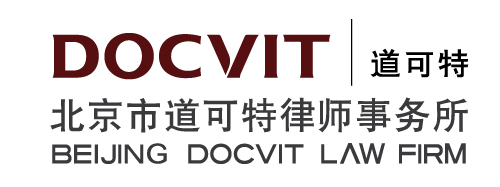A target company may have operational difficulties, or be unable to live up to expectations before the agreed time, during the performance of an investment agreement. In these situations, how to seek remedies becomes a concern of investors.
A hypothetical case. An investor saw the potential of the smart screen R&D project of the borrower (target company), and the two parties, along with shareholders of the borrower, entered into an investment agreement in 2018, pursuant to which the financier would invest RMB500 million (US$70.5 million) in the target company, including equity investment of RMB270 million and debt investment of RMB230 million.

Senior Partner
DOCVIT Law Firm
If the target company is not listed by 31 December 2022, its shareholders are then required to repurchase all shares held by the financier. When the last instalments of equity investment and debt investment were yet to be paid, the target company operating conditions have deteriorated drastically and the scheduled listing was basically unlikely.
Remedy for claim on the amount not invested: The insecurity defence. In the above hypothetical case, the target company’s state of business worsens before payment of the last instalments of equity investment and debt investment. If the investor pays the last instalment of investment as per the agreement, it will undoubtedly be exposed to more risks of recovering additional investment when it is already difficult to smoothly recover the investment made.
With respect to the investment agreement, the investor’s obligation to make equity investment and debt investment should be the prior obligation, while the borrower’s obligation to pay the agreed amount to the investor and reach the expected goals of the agreement should be a subsequent obligation. As the investor’s obligation comes before the borrower’s, the party under prior obligation, namely the investor, may exercise the insecurity defence and refuse to pay the outstanding instalments of equity investment and debt investment to the target company on the ground of its worsened state of business as per article 68 of the Contract Law.
With respect to the outstanding instalment of equity investment, especially when other shareholders of the target company are repurchase subjects, there is some dispute over the claim for insecurity defence on the amount of equity contribution yet to be paid, on the ground of the worsened state of business of the target company.
In a case over a Sino-foreign joint venture contract, the Supreme People’s Court decided that the investor’s refusal to make subsequent equity investment as agreed on the ground of “unsatisfactory state of business and loss of the target company” was not an issue of prior performance of obligations, and the insecurity defence should not apply.
The jurisprudential basis for this decision may be that although payment of investment amounts is first based on investment agreement, the investor should perform its obligation of contribution as per applicable provisions of the Company Law as soon as the agreement is reached. Unless the target company goes through capital reduction formalities, the investor, as a shareholder, should not refuse its contribution obligation on the ground of the insecurity defence.
Remedy for claim on the amount invested: Early “repurchase”. For the amount that has been invested, if the target company has difficulties in its operations and is unlikely to be listed before the agreed time of repurchase, the investor, seeking remedies, surely would expect the party subject to repurchase obligation to make an early “repurchase” of the shares. Will this remedy be successful?
First, it should be determined whether the clause regarding the time of repurchase is a time limit clause or a conditional clause. The conditional clause relies on uncertain objective fact that may happen in the future. If the fact is not in the future, or it is sure to happen, the clause does not constitute a conditional one.
The time limit clause concerns the fact that is sure to happen in the future. If the fact is not in the future, or it is not sure to happen, the clause does not constitute a time limit one. Listing of the target company or not is obviously uncertain. Therefore, the “repurchase” clause is not a time limit clause, but a conditional one.
As long as the conditions are met (depending on the specific agreements on conditions and requirements for board of listing in the contract), the investor may claim early “repurchase”, even if the agreed time of repurchase has not expired.
Second, how to determine the nature of the repurchase price with a premium based on the amount of investment. Article 108 of the Contract Law provides that if one party expressly states, or through its conduct indicates that it will not perform its contractual obligations, the other party may hold it liable for breach of contract before the time limit for performance has expired.
In the trial of second instance of a contract dispute case, the Supreme People’s Court decided that the repurchase price was liquidated damages in nature, as provided in article 108 of the Contract Law, based on the context of the clause and the calculation formula of the transfer price. Therefore, the share repurchasing party should assume corresponding liability for breach of contract as per the agreement on repurchase price.
Based on the above-mentioned, an investor should pay attention to the following in executing an investment agreement: (1) shareholders of the target company should be the parties subject to repurchase obligation. If the target company is subject to the repurchase obligation, it is proper to request its shareholders to assume joint and several liabilities so as to prevent insolvency of the target company as a result of heavy loss; (2) explicit repurchase conditions (e.g., yearly performance indicators) should be added in the investment agreement, and ambiguous repurchase conditions should be avoided; and (3) the investor, in its daily operation, should enhance supervision of financial data and business information of the target company to master its state of business.
Shi Guanghu is a senior partner at DOCVIT Law Firm

DOCVIT Law Firm
56/F Fortune Financial Center
No.5 East Third Ring MiddleRoad
Chaoyang District, Beijing 100020, China
Tel: +86 10 8586 1018
Fax: +86 10 8586 3605-8006
E-mail: dkt09@dtlawyers.com.cn





















